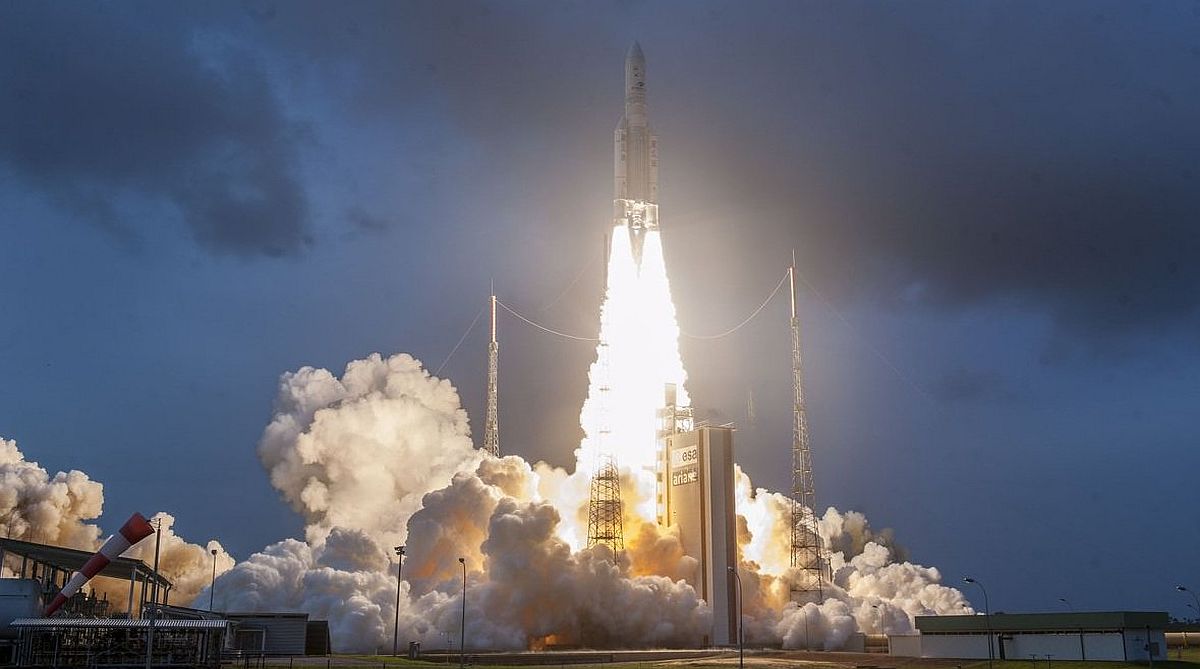India’s heaviest satellite GSAT-11, that would boost broadband services, was successfully launched by an Arianespace rocket from the French Guiana in the early hours of Wednesday.
Blasting off from the Ariane Launch Complex in Kourou, a French territory located along the northeastern coast of South America at 02:07 am (IST), the Ariane-5 vehicle injected the GSAT-11 into the orbit in a flawless flight lasting about 33 minutes. The launch was broadcast live on Doordarshan.
Advertisement
“…..the heaviest, largest and most powerful satellite ever built by India is successfully launched by Ariane-5 today,” ISRO Chairman K Sivan said soon after the launch.
Stating that GSAT-11 is going to be the “richest space asset” for India, he said “the satellite has 38 spot beams as well as eight sub beams, which would cover the entire country, including the remote places … it is going to provide something like 16 Gbps data link services to the country.”
Weighing about 5,854 kg, GSAT-11 is the “heaviest” satellite built by ISRO.
It is a next generation “high throughput” communication satellite configured around the ISRO’s I-6K Bus with a designed lifetime of more than 15 years.
The satellite will be initially placed in the Geosynchronous Transfer Orbit and later raised to Geostationary Orbit by firing the on-board Liquid Apogee Motor.
The satellite will play a vital role in providing broadband services across the country and will also be a platform to demonstrate new generation applications, the ISRO said.
According to ISRO, GSAT-11 is a multi-beam high throughput communication satellite operating in Ka and Ku-bands employing a new bus. It provides 32 user beams in Ku-band and 8 gateway beams in Ka-band.
The launch comes just days after ISRO’s workhorse rocket PSLV-C43 Thursday successfully injected into its orbit India’s earth observation satellite HysIS along with 30 co-passenger satellites from eight countries.
The high-profile launch of GSAT-11 was earlier rescheduled by the ISRO for additional technical checks.
The Indian Space Research Organisation’s move to put off the May 25 launch came weeks after the country’s communication satellite with military applications GSAT-6A went missing after a perfect launch.
(With PTI inputs)











